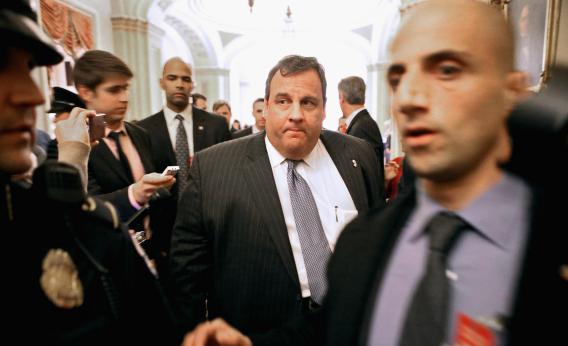A lot of people find early 2016 speculation and reporting annoying, but it’s actually crucial to understanding real world policy developments. For example, how is it that the Republican governors of Idaho and Utah (see Jeffrey Young’s great coverage here and here) are trying to set up Affordable Care Act exchanges while New Jersey’s Chris Christie isn’t?
The stated reasons from the governors of the more conservative states make perfect sense. They’re not slobbering the new law with kisses, praising the president, or even embracing his goals or approach. What they’re trying to do is maximize their own control over what happens and try to shape events in their state the way they like. Rejecting an ACA exchange, after all, creates annoyances and administrative headaches for the Obama administration as well as creating a political haze of uncertainty around the law but it doesn’t actually accomplish much of anything substantive. If anything, having the federal government run the exchanges will shift policy outcomes to the left. If what you’re trying to do is be the best Republican governor of Idaho (or Utah) that you can be, then setting up an exchange on your own terms is a no-brainer.
What’s different in New Jersey?
Nothing, really, except that Christie is a political celebrity who has presidential buzz in the media and is known to have some backers in both the GOP donor base and the GOP policy community while Butch Otter and Gary Herbert are basically nobodies. And what we’re seeing here is that Christie not only has fans, but he wants to position himself to make a run. One of Christie’s strengths as a presidential candidate is that as someone who was able to run and win in New Jersey and then stay popular, he can argue that he’s a guy who sells the conservative message in a way that’s non-toxic to the voters who’ve given Democrats the popular vote in five of the last six elections. But one of his vulnerabilities is that in order to do that, he’ll no doubt be found to have said and done some things that are less conservative than the views of the typical GOP activist. His embrace of President Obama’s leadership during Hurricane Sandy was clearly the right thing to do for New Jersey, but it already attracted some blowback from a lot of mid-level party figures. So it’s important for him to align himself with the official party position on big issues of national significance. That means giving no quarter to Obamacare. Obscure Republican governors of small conservative states can just rest easy and try to park the policy outcomes where they want them to be. A famous governor of a blue state who wants to be president needs to try to show he’s in the fight and siding with the party activists.
The invisible primary is already happening and it’s not just a sideshow or a curiosity, it has real impact on things that happen in the country and on the lives of everyday people who aren’t paying any attention.
